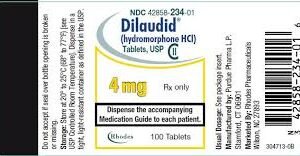Description
Clinoril is the brand name for sulindac, a nonsteroidal anti-inflammatory drug (NSAID) that is primarily used to treat pain and inflammation caused by conditions such as arthritis, bursitis, and tendinitis. It is also used to manage symptoms of ankylosing spondylitis and other musculoskeletal disorders. Sulindac is known for its ability to reduce pain, swelling, and fever, making it a valuable treatment for inflammatory conditions.
Active Ingredient and Mechanism of Action
The active ingredient in Clinoril is sulindac, which works by inhibiting the production of prostaglandins. Prostaglandins are chemicals in the body that contribute to inflammation, pain, and fever. Sulindac is classified as a prodrug, meaning that it is converted into its active form (sulindac sulfone) in the body after it is ingested.
- COX Inhibition: Sulindac works by blocking the action of cyclooxygenase (COX) enzymes, specifically COX-1 and COX-2. These enzymes are responsible for converting arachidonic acid into prostaglandins, which mediate inflammation, pain, and fever. By inhibiting COX enzymes, sulindac reduces the synthesis of prostaglandins, leading to a decrease in pain and inflammation.
Common Uses
Clinoril is most commonly prescribed for the following conditions:
- Osteoarthritis: Clinoril is often used to relieve pain, stiffness, and swelling caused by osteoarthritis, a degenerative joint disease that leads to the breakdown of cartilage.
- Rheumatoid Arthritis: Clinoril helps reduce the symptoms of rheumatoid arthritis, an autoimmune disorder that causes joint inflammation and damage.
- Ankylosing Spondylitis: Clinoril can alleviate the pain and stiffness associated with this inflammatory condition that primarily affects the spine and sacroiliac joints.
- Bursitis and Tendinitis: Clinoril is used to treat pain and inflammation related to tendon and joint problems, such as tendonitis or bursitis.
- Acute Pain: Clinoril can also be used for short-term management of acute pain, such as that caused by sprains, strains, or injuries.
Dosage and Administration
Clinoril is usually prescribed in tablet form and should be taken according to the doctor’s instructions. Here are the general guidelines for use:
- Typical Dosage: The usual starting dose for adults is one 150 mg tablet twice a day. Depending on the severity of the condition, the dosage may be adjusted. Some individuals may require a higher dose (up to 400 mg daily), especially for inflammatory conditions like arthritis.
- Take with Food: To minimize gastrointestinal side effects, it is recommended to take Clinoril with food or milk.
- Adjustments for Specific Conditions: Your healthcare provider may adjust the dosage based on the severity of your symptoms, age, and other health factors. It is important to follow the specific instructions given by your doctor.
Possible Side Effects
Like other NSAIDs, Clinoril may cause side effects. The most common and serious side effects include:
- Gastrointestinal Issues: Stomach upset, indigestion, nausea, or more serious problems such as ulcers, gastrointestinal bleeding, or perforation. These side effects are more common with long-term use of NSAIDs.
- Kidney Problems: Sulindac can affect kidney function, particularly in those with pre-existing kidney conditions. Symptoms may include reduced urine output, swelling, or weight gain.
- Liver Toxicity: Though rare, sulindac can cause liver damage, as indicated by symptoms such as yellowing of the skin or eyes (jaundice), dark urine, or persistent fatigue.
- Cardiovascular Risks: Long-term use of NSAIDs, including Clinoril, has been associated with an increased risk of heart attack, stroke, or high blood pressure, particularly in individuals with pre-existing heart conditions.
- Allergic Reactions: Some people may experience allergic reactions, such as rash, swelling, or difficulty breathing. Severe reactions like anaphylaxis, though rare, require immediate medical attention.
- Fluid Retention: Clinoril can cause fluid retention, leading to swelling in the legs, ankles, or feet, which may be problematic for those with heart or kidney issues.
Conclusion
Clinoril (sulindac) is an effective NSAID used to treat various inflammatory conditions, including arthritis, musculoskeletal disorders, and pain associated with inflammation. By reducing pain and swelling, it helps improve mobility and quality of life for individuals suffering from chronic inflammatory conditions. However, as with all NSAIDs, Clinoril comes with potential side effects and risks, particularly with long-term use. It is important to follow your healthcare provider’s instructions and report any adverse reactions promptly. Regular check-ups and monitoring may be necessary for individuals on long-term sulindac therapy.






Reviews
There are no reviews yet.